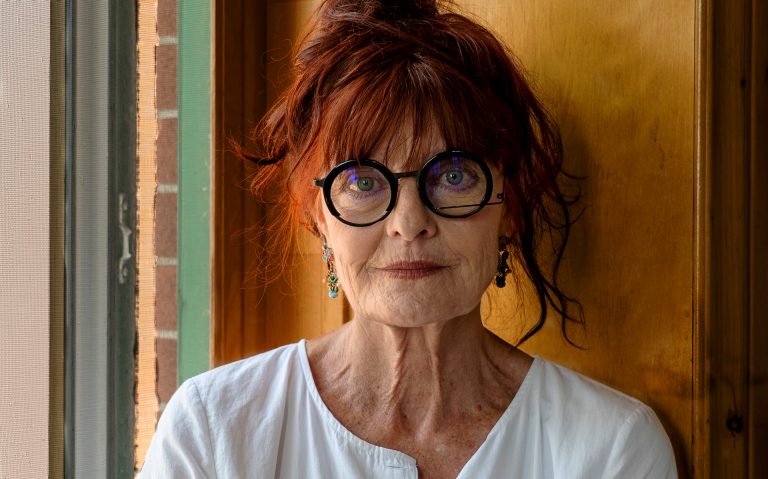Concordia’s chair of design and computation arts is leading her faculty’s sustainability initiatives

pk langshaw, professor and chair of Concordia’s Department of Design and Computation Arts, has been actively involved in the steady advancement of the university’s sustainability efforts. Her resumé includes being a member of the Campus Sustainability Engagement Sub-Committee and fellow at the Loyola College of Diversity and Sustainability.
“Over the past 10 years I have participated on numerous committees, so I see the momentum across the university, which is fantastic because you need that kind of engagement to move forward,” she says.
langshaw is now leading the Faculty of Fine Arts’ sustainability initiative. Under an inclusive steering committee, it will identify and map out the faculty’s ongoing sustainability achievements, determine what areas and habits need improvement and consider its related sociocultural responsibilities.
Expanding on the faculty’s current research practices, the initiative aims to reimagine the social and ecological impact of art and design practices, the use of critical material and donor-funded sustainability programs. It will include a review of administrative and technical staff operations, such as paper use, waste management and energy-efficient equipment.
The committee will share intelligence and best practices through a consortium that will include directors of cultural and related institutions, among others.
langshaw reports that the faculty’s nine department chairs are all on board. “They wish to contribute to how the fine arts can maintain, shift and enhance our research and creation over the long term,” she says.
“There is a strong interest in sustainability across the fine arts, thus we are building upon prior initiatives with the guidance and support of our dean, Annie Gérin.”
The initiative is in line with Concordia’s commitment to the United Nations 17 Sustainable Development Goals.
langshaw adds that, perhaps surprisingly, the COVID-19 pandemic has led to some positive sustainability outcomes.
“The pandemic, with all the restrictions to teaching and learning, has actually been an accelerator because we’ve had to shift some of our practices. For example, students were provided studio kits to work with from home, which meant that particular attention had to be directed to sourcing non-toxic materials,” she notes.
“Now that we have procedures that do not endanger students’ health, these models can be scaled up and transitioned into the studio setting as we return to campus.”
She points out that thinking sustainably has a cascading benefit. “It becomes part of our individual and collective ways of being and behaving, teaching and learning. This influences our discourse, research, production, service and even how we position our hiring protocols,” langshaw says.
“Our goal in fine arts is to be a sustainability leader and reach out across Concordia and to other institutions and communities, so this becomes an expansive and vibrant network.”
Co-operating with others
langshaw reports that her department has already embedded many sustainability principles into its core values. She suggests the field of design is well suited to further the work of sustainability because of its emphasis on collaboration and its cross-disciplinary nature.
And she recognizes changes in her own work. “I initially worked on reinventing and repurposing artifacts and objects with an ecological focus. Over time, and experience, I became inspired by nature and how it exists and evolves wholly interconnected and relational,” langshaw notes.
“My creative process then transitioned to integrate eco-design with sociocultural commentary. For example, recreating artistic representations of the extraordinary narratives during crisis or war, or my children’s book series that embraces co-existing with urban flora and fauna within our wild cities. I am striving to reorient the discipline of design beyond the human-centric view.”
langshaw acknowledges that achieving a big-picture view of sustainability can face obstacles.
“It’s always evolving, complex, very contradictory at many stages. If you are recycling clothing you may be contributing not to the lifecycle or reuse of garments but to the disposal or dumping of our excessive waste onto other countries. Likewise, the social aspect may conflict with environmental regulations,” she says.
Nonetheless, she’s up for the task. “This is a challenging but exciting time to exchange knowledge, collaborate and support each other in working toward sociocultural, environmental and economic success at Concordia.”
Learn more about Concordia’s Department of Design and Computation Arts and the university’s commitment to the United Nations Sustainable Development Goals.


